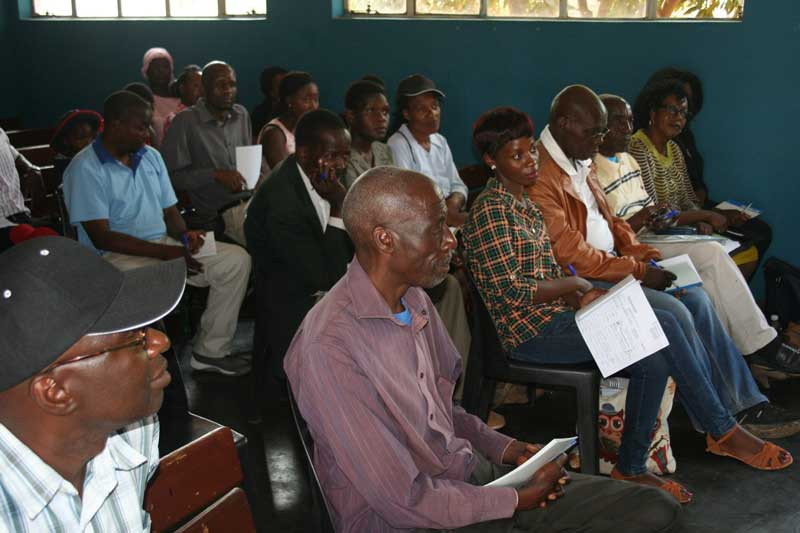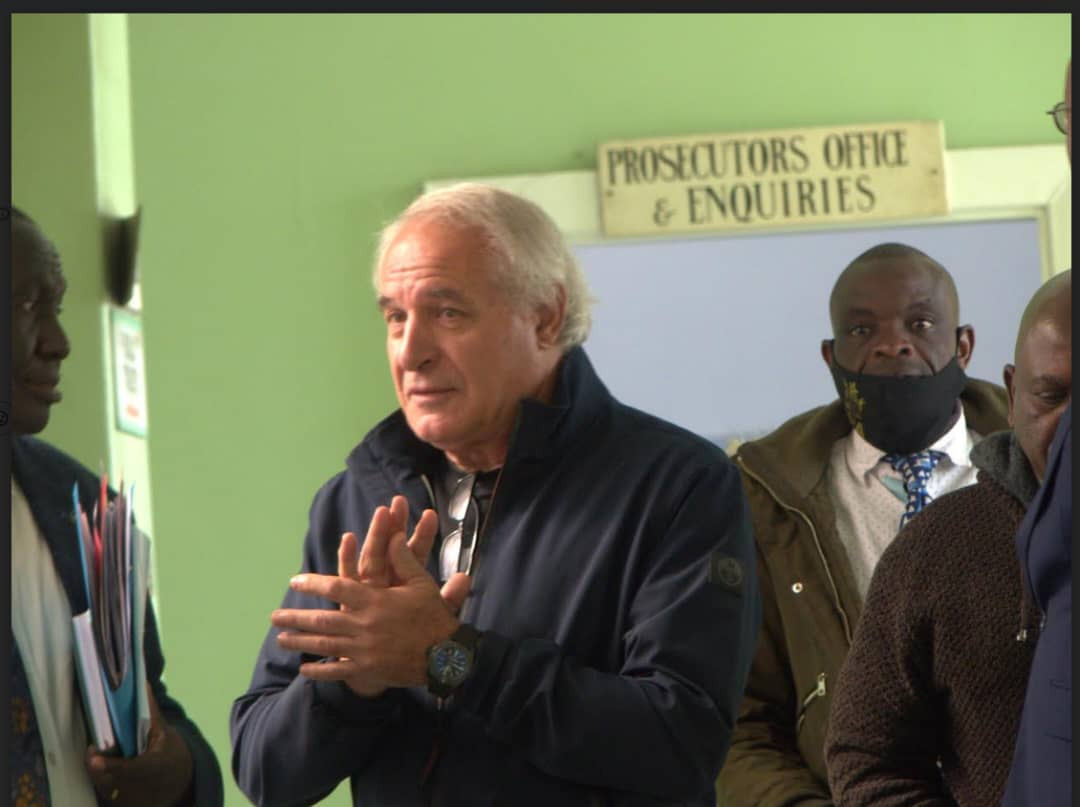
The 2013 constitution of Zimbabwe provides for a devolved system of government where governing power, responsibilities and finances are shared across three tiers — national government, provincial and metropolitan councils (PMCs) and local authorities.
On the coattails of this system is an opportunity for citizen participation.
Specifically, section 264 (2) (a) of the constitution states one of the objectives of devolution as “to give powers of local governance to the people and enhance their participation in the exercise of the powers of the state and in making decisions affecting them.”
The question that arises is, in the process of implementing devolution, how do citizens exercise their constitutional right to govern and be involved in decision-making?
When the government started implementing devolution in 2019, it adopted an approach where local authorities would consult members of the public through ward development committees (Wadcos).
Yet, the question remains, how effective are these committees as a vehicle of citizen participation?
We assess the role of Wadcos using evidence from a mixed methods study conducted across six provinces and 12 local authorities in Zimbabwe.
We argue that, as a structure, the Wadco is an indispensable tool for citizen participation which, in terms of practice, has been crippled by several constraints and reduced to a redundant platform.
- Unpacking environmental laws for real estate in Zimbabwe
- Village Rhapsody: Govt must ensure that devolution works
- Unpacking environmental laws for real estate in Zimbabwe
- Gukurahundi public hearings: A breakthrough or a political gimmick?
Keep Reading
The ward development committee
The Rural District Councils Act provides for the establishment of a Wadco in each ward of a local authority area.
The Urban Councils Act is silent but local authorities, through various internal policies, have since followed suit.
Generally, the committee is a representative body of the people domiciled in the ward that is as inclusive as possible.
It is chaired by the ward councillor and composed of a secretary, all village heads and their village secretaries (in the case of rural district councils) and representatives of various interest groups and sectors.
These may include representatives of government departments operating in the ward, women, youths, people with disabilities (PWDs), churches, business community.
The committee is mandated to meet every quarter for development business or any other time as requested by members in the face of pressing matters.
The main role of the committee is ward development planning.
The assumption is that development concerns and priorities are better known by the people domiciled in the ward who, through their representatives in the committee, identify, prioritise and table them before the respective local authority for service delivery.
Within the context of devolution, it follows that the devolution funds allocated by the treasurer annually (at least 5% of national revenue) should not address the national government’s priorities but finance the development priorities raised by communities through the Wadcos.
Opportunities
As alluded to above, as a structure, Wadcos present the only meaningful and viable opportunity for organised citizen participation in devolution.
Not only do they facilitate participation but they promote inclusion.
This is because of the multiplicity of social groups and sectors represented in the committee.
With inclusion also comes quality in decision-making due to the comprehensive and exhaustive nature of generated ideas.
This inclusive nature is not only good for the pulling of diverse ideas but is also good for cohesion in communities, a specific objective of devolution in the constitution.
In addition, Wadcos stand as an alternative to partisan political structures that are pervasive across the length and breadth of the country.
Since councillors are deployed by political parties, they are more likely to work with members of their political structures if left to their own means.
The Wadco provides an alternative structure where membership is predetermined by an Act of Parliament or policy.
In addition, Wadcos have a limited number of members that can discuss development needs in an orderly and more progressive manner compared to the chaos, sloganeering and praise singing often associated with political rallies.
Since the Wadco is an inclusive participatory structure, it presents a huge opportunity for communication as a link between communities and their council.
Members of the community from as far as villages and streets can send their concerns to the council through their representatives.
At the same time, the local authority, through the councillor can relay information to communities.
Challenges
Despite all the opportunities available, Wadcos, in terms of practice, are facing a multiplicity of challenges that have rendered many ineffective and most of them dysfunctional.
First, in terms of the law and policy, the Wadco is supposed to be an apolitical structure that focuses on advancing development for all ward residents.
However, in practice, Wadcos have never succeeded in disentangling themselves from the tentacles of political party structures.
This is largely attributed to the decisive role of councillors as the appointing authority of Wadco members and partly to political parties’ unrelenting pursuit of power.
In this style of politics, there is hardly any room for neutrality as councillors are not free from party direction and the knotty whipping system.
Accordingly, Wadcos have succumbed to a rubber stamping vehicle of party decisions.
In cases where the committee and party break ranks, councillors are forced to manipulate Wadco resolutions and align with party direction.
Secondly, except for government employees, most members of the Wadco are in dire need of capacity building.
In most communities, Wadcos are just established by councillors without proper orientation and have been operating for years without any training. As a result, the quality of decisions is compromised.
The subject of devolution itself is a good example. Research findings indicate that most members still have little understanding of the devolution programme and how it is supposed to work, councillors included.
Of all the factors constraining Wadco operations, the lack of adequate resources is probably the most impactful.
Local authorities hardly provide a budget for Wadco operations, but strangely expect them to meet quarterly and attend to council business.
There are no provisions in council budgets for accessories such as office space, computers, photocopying and printing.
The members do not receive transport allowances, sitting allowances or refreshments during the regular meetings.
This challenge is coupled with the fact that in rural areas, members walk for long distances to the ward centre where meetings are normally held, hence attendance is erratic.
Fourth, most committees in government are administratively supported or serviced by trained personnel.
From portfolio committees in parliament to council committees, there is always a paid technical officer or clerk responsible for assisting committee members with report writing, organising meetings, reminding chairpersons and guiding them on committee business.
Wadcos are an exception as they have to literary find their own way.
As a result, meetings hardly take place on time and sometimes resolutions are not properly recorded. Functionality remains a challenge mainly because the committees have been left for dead.
Fifth, after conducting Wadco business under the difficult circumstances highlighted above, most Wadco members feel that their input is hardly considered by local authorities.
Due to this disappointment with the extent of influence that Wadco business has on council decisions, confidence in Wadco meetings is very low.
This is the case in both rural and urban local authorities.
Generally, citizens view participation in Wadco business as a waste of time and this explains the apathy in most local authorities.
Equally sapping the energy of Wadco members across the urban and rural divide is the poor performance of local authorities manifesting through a breakdown in service delivery.
Because Wadco members are right at the coal face of service delivery, they are very difficult to deceive.
The unavailability of medicines in clinics, shortage of teachers in schools, bad road networks, long distances to clean water points, uncollected refuse and chronic water reticulation challenges are right before their very eyes.
Thus, in the eyes of residents, it is still difficult to trust that if local problems are raised, the council can address them.
Lastly, in most local authorities, particularly in rural areas, inclusive participation is still a long way from being a reality.
This is because of various entrenched socio-cultural practices, values and beliefs that discriminate against vulnerable groups such as women, youths and people with disabilities.
Conclusion
The 2013 constitution of Zimbabwe is a progressive document that advances the democratic participation of the people in governance and development processes.
, a lot still needs to be done in terms of supporting legislation and policies that can bring the spirit of the constitution to fruition.
There is no doubt that Wadcos are an indispensable tool for citizen participation in the devolution programme.
However, because they are not adequately supported, they remain a sleeping giant with untapped potential.










